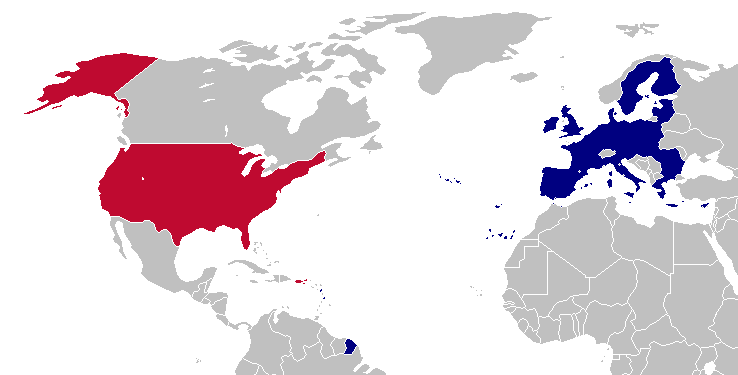 With states facing billions of dollars in losses due to the lack of European tourists this year, WalletHub today released its report on the States Hurt the Most by the European Travel Ban, along with accompanying videos.
With states facing billions of dollars in losses due to the lack of European tourists this year, WalletHub today released its report on the States Hurt the Most by the European Travel Ban, along with accompanying videos.
In order to determine the states hurt the most by the European travel ban, WalletHub calculated the potential monetary losses based on the number of inbound tourists to each state alongside their total spending, and compared the result to each state’s gross domestic product (GDP).
| States Hurt the Most | |
| 1. Nevada | 6. Utah |
| 2. District of Columbia | 7. Arizona |
| 3. New York | 8. Massachusetts |
| 4. Florida | 9. Louisiana |
| 5. Hawaii | 10. California |
Notable Stats
- Average COVID-19 incidence rate of banned European countries: 4.55 per 100,000 persons.
- Highest COVID-19 incidence rate among allowed countries: 119 per 100,000 persons (Seychelles)
To view the full report and your state’s rank, please visit:
https://wallethub.com/edu/
Expert Commentary:
Do travel bans at a country level make sense? Why or why not?
“Travel bans contravene the longstanding WHO precedent outlined in the International Health Regulations (IHR) adopted in 2005. Under the IHR (2005), travel bans at a country level are discouraged due to their potential to contribute to ‘unnecessary interference with international traffic and trade.’ The argument against travel bans is largely based on concerns about unintended consequences of these policies: First, that they might discourage countries from honestly reporting on emerging outbreaks for fear of economic harms; Second, that economic harms can also have devastating health impacts including shortages of basic goods.”
Ashley M Fox, Ph.D., MA – Associate Professor, University at Albany
Why are the country travel bans not based on current Covid-19 rates?
“Ways of measuring positivity, death, or recovery are done inconsistently between areas. If rates are measured in one area in one manner, yet another area has a different criterion for what is considered a ‘death by Covid,’ how can these numbers be valid or reliable when deciding to ban people from that region?”
Angela Durko – Instructional Associate Professor, Texas A&M University
“The short answer is likely that country travel bans are based more on politics than evidence, including the continuation of travel restrictions against Iran, but of particular recent concern is the emergence of different variants. Current travel restrictions appear to reflect the goal of slowing the global transmission of more transmissible and virulent COVID-19 variants.”
Ashley M Fox, Ph.D., MA – Associate Professor, University at Albany
Which would be more effective: travel bans or more robust Covid-19 testing?
“Bans may have a short-term impact, (again, that research is few and far between right now) but the long-term economic, industry, and consumer impacts may outweigh the short-sighted benefits. Testing is only a snapshot of the individual’s health at that specific moment…We must reflect on changes based on past global outbreaks (SARS, Ebola, MERS) to demand our industries and residents hold themselves to high cleanliness standards and individuals responsible for their own health.”
Angela Durko – Instructional Associate Professor, Texas A&M University
“As we face challenges in managing COVID-19 over time, it is best to adopt more robust testing programs. We should learn from the past year and recognize that proactive investments in overall public health programming, including testing, are essential. Vaccine education, acceptance, and accessibility are among the highest priorities. Accessible and reliable testing systems can help in achieving these overall goals. These efforts can benefit the population as a whole and as a consequence can benefit those who travel as well.”
L. Christopher Plein, Ph.D. – Professor of Public Administration, West Virginia University








